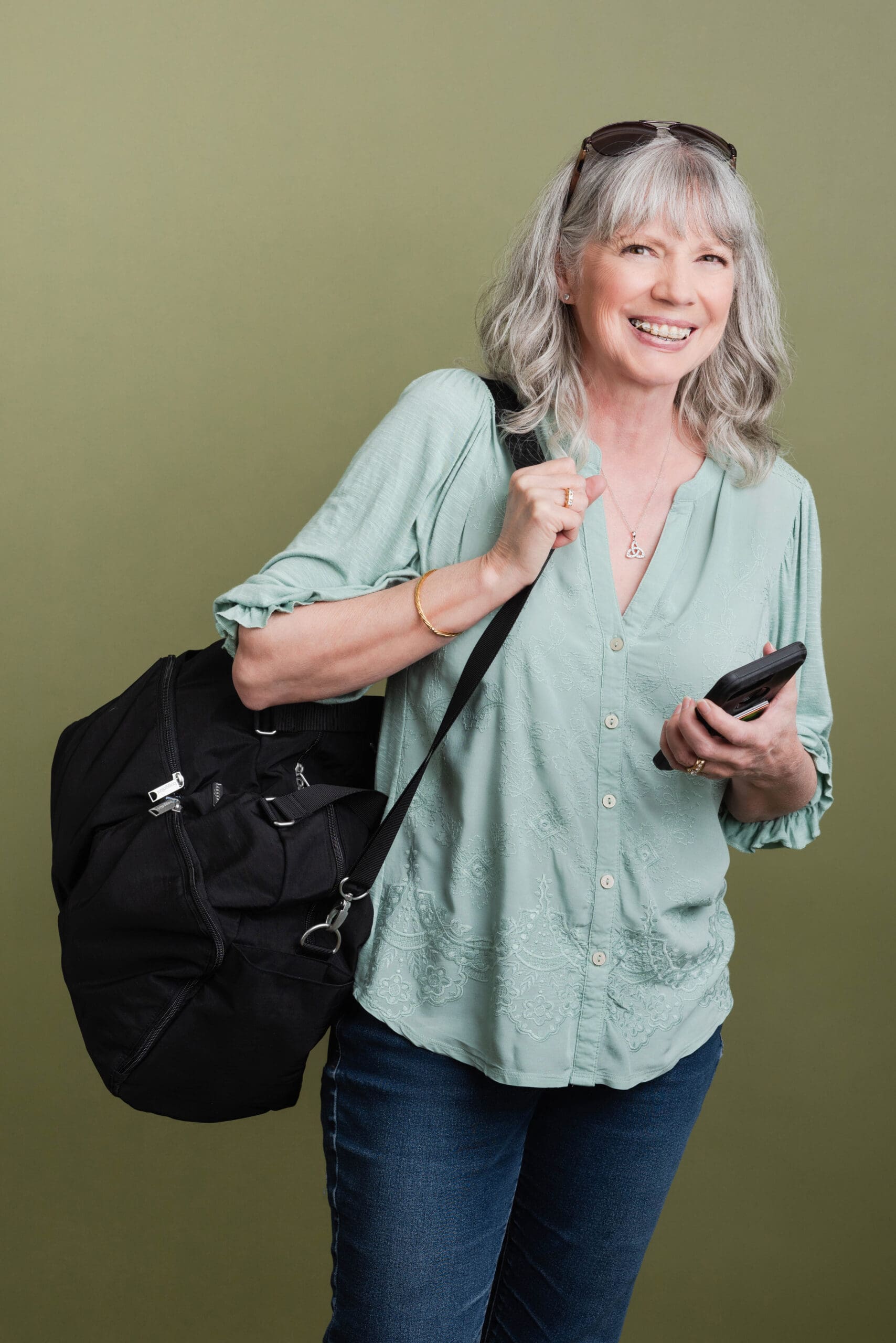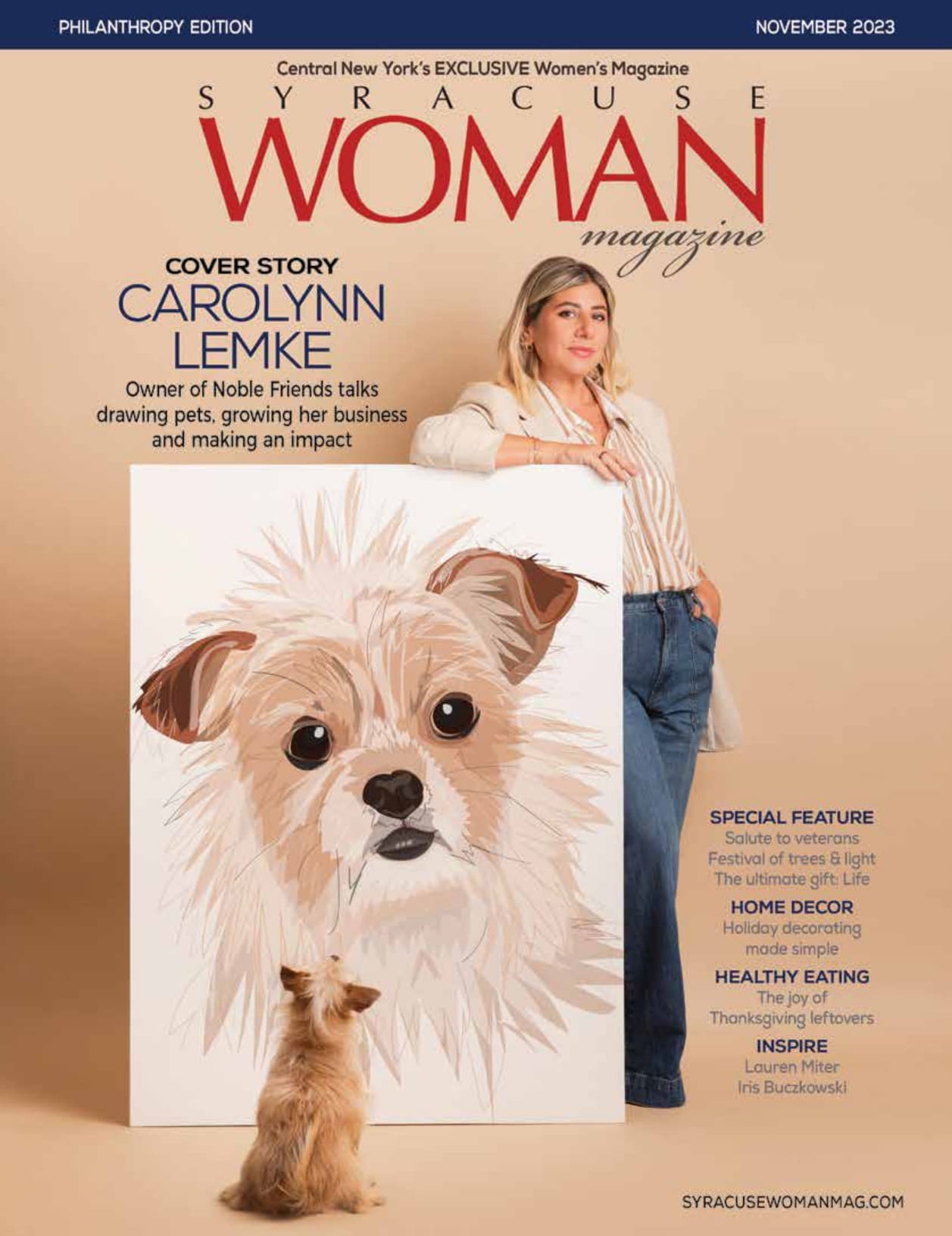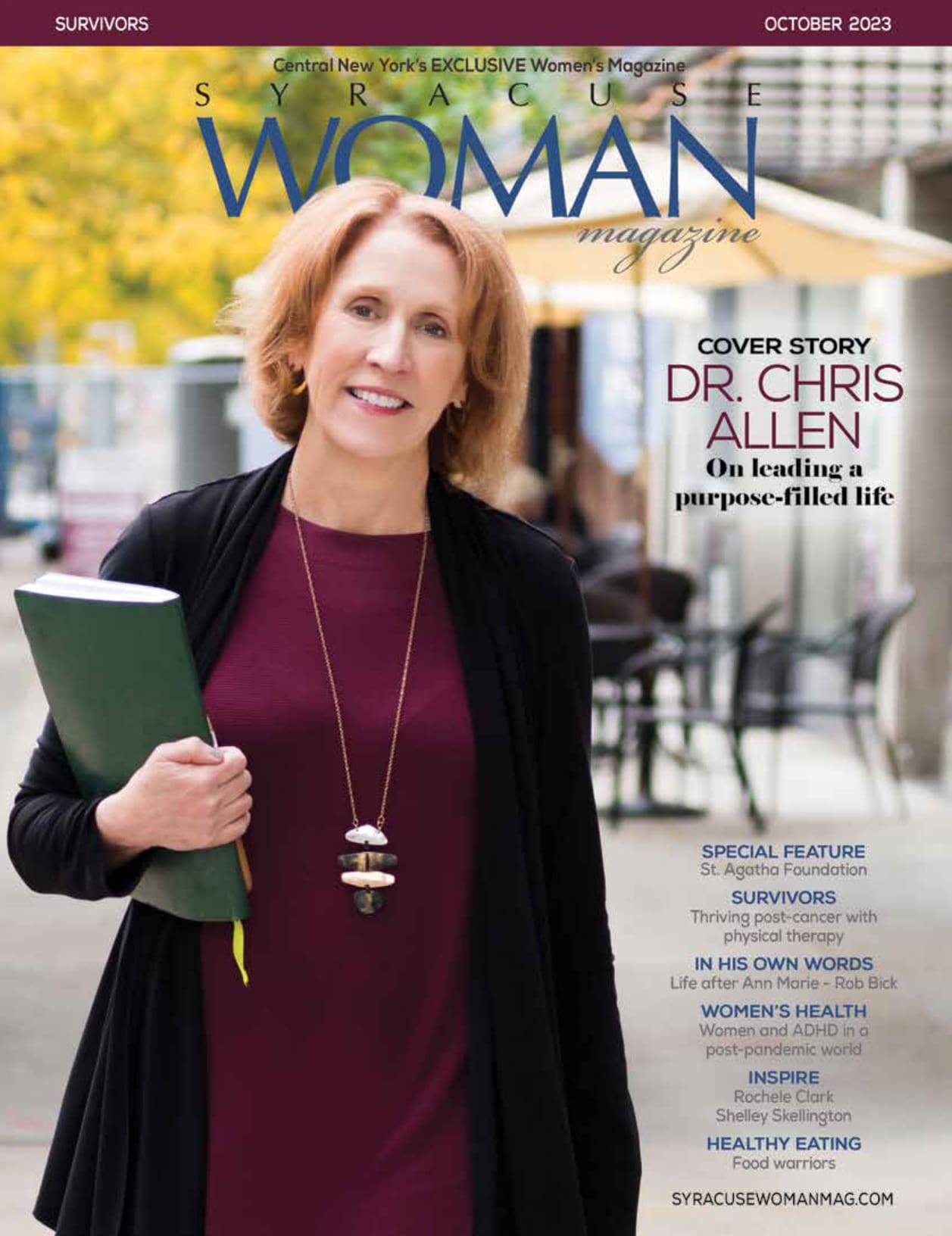By Abigail Welles
Dr. Kathryn Anderson began her role as the county health commissioner in early November 2022, succeeding Dr. Indu Gupta who served the Onondaga county for more than seven years. The role is one Dr. Anderson is immensely passionate about but not one she expected taking when moving her family to Syracuse in 2019.
Anderson has dedicated much of her professional life to researching infectious diseases. She was lured to the field began through a simple interest in biology and that brought her to research carrion beetles during her undergraduate studies. Limited in her societal impact, she sought out research that would prove more insightful to greater public health problems. It was then that she transitioned from carrion beetles to mosquito borne viruses, years prior to our global understanding of Zika and other associated threats. Her fascination with emerging viral diseases and the desire to develop solutions has since transformed into 20 years’ worth of research.
Anderson received her MD/PhD from Emory University where she studied as a physician scientist. Upon completing her residency at the University of Minnesota, worked as a hospitalist and researcher of emerging infectious diseases. More specifically, she has spent the past 20 years living between the states and Thailand to study dengue fever, a mosquito borne illness and global public health problem. She has collectively spent nearly five years of her life in the Southeast Asian country studying infectious patterns around dengue to understand its transmission and immunology in order to design vaccines.
In late 2019, a handful of months before the global pandemic emerged, Anderson was appointed as Director of the Center for International Research at SUNY Upstate. She moved her family from Minneapolis to Syracuse for the prospect of working more closely with colleagues on existing dengue research. In March 2020, when COVID-19 effectively sent the world into panic, she and her coworkers were forced to quickly translate their research on viral diseases, infections, and transmission to focus on an unknown virus that brought with it a sudden and immense threat.
“There were similar questions. They are both RNA viruses, also huge public health threats…We adapted a protocol we used in Thailand to study dengue in households to study COVID in households here to try to understand risk factors for transmissions,” Anderson said. “We took a lot of the exact methods we used to research dengue. We also just took the general concept of working together with people across disciplines to develop tools we could apply quickly.”

While Anderson’s work at Upstate did not collaborate directly with Gupta’s COVID initiatives, she did work with teams dedicated to improving diagnostics, all of which informed work that the county was doing at the time. “I was very fortunate to be working within a very multi-disciplinary group so we asked a lot of what we call translational questions about COVID. How can we design better diagnostics and we applied those to our epidemiological studies” she explained. “The saliva PCR diagnostics, for example, that Frank Middleton developed, we used those across a variety of platforms to ask research questions. We developed immunological tests to better understand immunity, duration of immunity, and breadth of immunity.”
Anderson had only been a resident of the Syracuse area for less than six months when she was pulled into what would prove as a memorable chapter in her career.
“When Upstate went to incident command in March of 2020, I was pulled into the response in part because of my experience in the epidemiology of emerging viruses. [I was] highly engaged in trying to help interpret data that was emerging in real time to help make recommendations,” she said. “It was the first time I was involved with community outreach, working with the media, and I found that really satisfying…I discovered that working more locally and with the community was really something I appreciated the opportunity to do and it sparked something in me.”
Despite dengue research starring in the majority of her life’s work, Anderson began to see the value in local public health work. “Dengue doesn’t affect Syracuse but here we were studying something that is impacting our lives, my family’s life, my colleagues’ lives.” Beyond the evitable impact her and her colleagues’ work was doing for the local area, the general sense of community was a driving factor in her decision to move out of her role at Upstate and into the role of health commissioner.
“I enjoyed the opportunity to get to know so many community members…all kinds of working together on the public health response. It inspired this desire to do something locally,” she said. “I didn’t really know what to do with that until this position became available.”
For Anderson, community strength remains one of the most important lessons the county learned throughout the pandemic.
“I think that there have been connections formed in the community in terms of what people can accomplish together that is really powerful,” she said. “That includes working with people who are developing diagnostics…but also community-based organizations, working with government, working with academia…That was powerful to me, that we can do more. And I hope we don’t lose that. I hope we can only strengthen that.”
Anderson began her work with COVID out of necessity. She worked with the very colleagues she moved to Syracuse for, excited to continue their work in dengue research, to advance our understanding of COVID and protect the greater community. Now health commissioner, she is still learning the vast expanse of the community and what it has to offer, but does have a general vision for her tenure as health commissioner. Her platform intends to uplift health literacy and promote better data collection, driving an overarching theme that organized, expert information is a powerful tool in promoting the health of a greater community – especially in the wake of the pandemic.
Health literacy was a major challenge during the pandemic, serving as a primary source of anxiety for many as they sifted through boundless amounts of information – and misinformation – around COVID, vaccinations, and prevention.

“I’ve learned that public health is underappreciated or underestimated in terms of importance. And we saw that nationally. People don’t understand how public health affects their lives and how to appreciate health insights from experts,” explained Anderson. “One area that our community and the United States need to grow is health literacy. How to take in health advice and make educated decisions for yourself and your family.”
As the community continues to grow past the pandemic, the county remains committed to ongoing education around COVID and emerging vaccines. There are still lingering questions surrounding the virus, vaccines, and boosters, and the county’s public health teams are dedicated to ensuring members of the community get the answers to information they need.
In addition to continuing to support the community through the aftermath of the pandemic, Anderson plans on promoting the expansive public health programs Syracuse has available and investing energy into supporting poverty related health concerns such as lead poisoning, mental health, and general health care access. This also includes proactively supporting the opioid crisis, which is a cause Anderson has been working on for the past decade.
“I’ve been working in hospitals in Syracuse and Minnesota since 2012, and the increasing use of opioids and overdoses have been evident in the hospitals and it’s been frustrating as a clinician to feel as though options and our resources are limited for a problem that is worsening,” she said. “Our county is actively involved in harm reduction…We will be initiating legal exchange at some sites in Syracuse. This is one of those programs that I am really proud of in terms of how we are out in the community trying to meet people where they are at.”
Her goal is to promote the vast variety of public health activities across the community in a way that is positive and proactive, especially those that are overlooked until there is a significant problem. A major theme to help with promotion dwindles down to data collection.
“There is value in having local data available at our fingertips…We are very different from New York City and the need to know what is happening in our region is important and to not take our eye off of [COVID] while we are increasing our focus in other areas such as lead or opioids.” Dr. Anderson hopes to leverage better data collection in order to elevate how the county organizes and synthesizes data to inform vital decisions about public health initiatives. “My goal is for all of our big initiatives and priorities to, in an ideal world, have dashboards where we can track our big programs… We have pretty lofty goals and it’s a lot of data but we have exciting work to do.”
As for COVID, they intend on continuing to pull and monitor data across the county in order to keep a finger on the pulse while we are expanding new programs. In the meantime, the public health team is reminding the community to remain proactive with their health this holiday season and New Year by getting their flu shot and updated vaccines.






You must be logged in to post a comment.